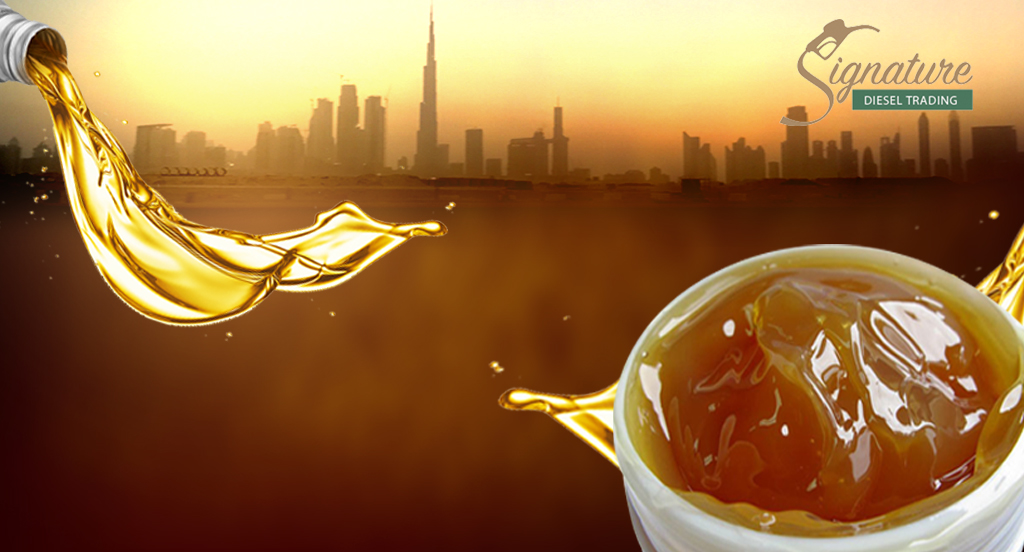
OUR STORIES


A lubricant's primary function is to reduce friction and wear on surfaces that have relative motion between them. At times in mechanical systems they also serve as a heat-transfer agent, a corrosion preventative and a sealing agent. Apart from oils and greases which are the common forms of liquid and semisolid lubricants there exists other forms such as dry lubricants, gas lubricants (such as air), etc. Lubricants supply in UAE actually maintain the level of productivity and efficiency of the industrial machinery requirements in the UAE. The global industrial economy is affected by Lubricants and greases.
For better production numbers many manufacturers and industries depend on lubricants and greases which helps in preventing unnecessary machine breakdown. Heavy production losses are avoided by this and industrial machinery is kept in good shape making them reliable and reducing downtime. As leading name in Grease supplier Abu dhabi , Signature Diesel trading provides highest-quality and lowest priced industrial lubricants and greases of all kinds meeting the varied requirements of our clients. In this article we will discuss about lubricants and grease in detail.
Types of Lubricants
1. Liquid Lubricants
It is mainly from petroleum and synthetic fluids, Liquid lubricants are produced. Out of the characteristics of liquid lubricants, viscosity plays an important role. It is defined as the measure of the velocity gradient between stationary and moving parts of a fluid and expressed in units of lb-sec/ft2. Temperature, shear, and high pressure affects the viscosity of a lubricant. The viscosity index is a number from 0 to 100 based on an oil's change in viscosity with change in temperature. If the number is high then there is less change in viscosity with change in temperature.
Liquid lubricants are classified based on the origin from which liquid were extracted. Generally they are classified as:
2. Solid Lubricants
When liquid lubricants cannot be used in conditions like extreme temperature or pressure then Solid lubricants comes in the foreground. They are also known as dry-film lubricants. There are many advantages of solid lubricants like ability to work under high loads, high thermal stability, diversity of the application forms etc. But when compared to hydrodynamic regime they have higher coefficient of friction and wear. Because of its less convenient system of the lubricant delivery to the friction surfaces fluid lubricants are more in demand.
Solid lubricants are mainly classified into:
3. Grease
Greases are made by using oil and mixing it with thickeners such as lithium-based soaps. Some additives included in grease production impart desirable properties to the formulation such as corrosion resistance and tackiness. The lubricating properties of oils with added stickiness of Greases helps them in adhering to the surfaces better. It also protects the surfaces from contaminants that can corrode or damage them. They are mainly used in Gears, bearings, chains and linkages.
Some common Grease types used are as follows:
As one among the leading name in Diesel trading in UAE, we deliver and supply premium quality diesel fuels, lubricants and greases for our clients in different industrial sectors. We ensure Lubricants supply in UAE and supply of lubricant products for general purpose as well as in bulk orders as per your industrial requirements in and around middle east.
Consult us, reliable industrial Grease supplier Abudhabi for ensuring you the lowest price, best in quality safe and resistant Lubricants and Grease in UAE.